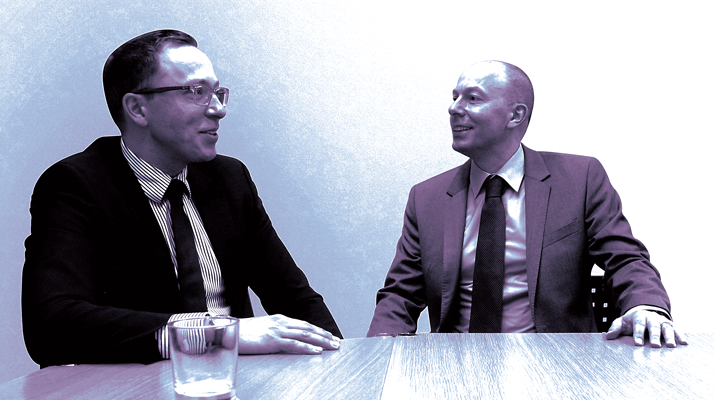
It’s a constantly changing environment, and we have to continuously adapt. Regulation is one example. We’ve had to invest heavily in our quality systems, in response to FDA-mandated quality assurance processes and increasingly stringent CE regulations, and this has meant that we’ve had to find other ways of reducing costs – such as adopting lean production methods.
Another issue is bundling. Larger companies have the ability to sell many of their products together as bundles, which is clearly something that we cannot do. But although this may seem like a disadvantage, our local dealers have complementary products in their portfolio that they can bundle with our equipment, letting us stay competitive.
Our company is family-run, and we sell through a network of independent dealers. This plays an important role in our success. In most markets, we have very long-lasting relationships with our dealers, who in turn have strong personal relationships with their local customers – which gives us a great customer base, founded on trust and long-term connections. We don’t have to answer to shareholders, which means we can put less focus on producing short term profits, and focus on the bigger picture – we don’t have shareholders grilling us on our profit and loss figures every three months!
Frankly, we love to compete against the big multinationals! We believe engineering and manufacturing our own machines, instruments and consumables (rather than outsourcing it) brings a number of advantages: tight control of our products, reliability, and we can be more responsive to market trends and the needs of our surgeon customers. It enables us to be a very attractive alternative to the big players.
We believe having no shareholders, banks, or leveraged business model behind us makes us stronger. Although there are many mergers going on, there is still space for independent companies to thrive, and many customers value our independence. Actually, the more we see mergers, the more encouraged we feel – it means that increasingly, we stand out from the crowd.
We think it has changed significantly, moving from scattered local and national entities, both scientific and commercial, to a truly global discipline and market. Small, local manufacturers have given way to multinational organizations, and surgical procedures have become far more standardized. As well as the introduction of new surgical and diagnostic tools, we think the use of sterile consumables, and the dramatic increase in regulations, have resulted in the biggest changes in the way that ophthalmic surgery is performed.
In marketing, we think it’s gone from a vendors’ market to a buyers’ market, and products aren’t as distinct from each other as they were before. This makes it easier to switch between products, which we think has resulted in a decrease in brand loyalty. I also believe that cataract surgery has become more and more of a commodity, and is now far more consumer-orientated.Walking through the big international congresses, you don’t see medical device exhibitions anymore – they have become big marketing trade shows.
We think it has changed significantly, moving from scattered local and national entities, both scientific and commercial, to a truly global discipline and market. Small, local manufacturers have given way to multinational organizations, and surgical procedures have become far more standardized. As well as the introduction of new surgical and diagnostic tools, we think the use of sterile consumables, and the dramatic increase in regulations, have resulted in the biggest changes in the way that ophthalmic surgery is performed.
In marketing, we think it’s gone from a vendors’ market to a buyers’ market, and products aren’t as distinct from each other as they were before. This makes it easier to switch between products, which we think has resulted in a decrease in brand loyalty. I also believe that cataract surgery has become more and more of a commodity, and is now far more consumer-orientated.Walking through the big international congresses, you don’t see medical device exhibitions anymore – they have become big marketing trade shows.
Here, we have access to a highly committed and qualified labor force who put a lot of love into what they do. We can work in an environment that is predictable and politically stable, with a fair taxation system and without major hurdles in terms of government rules. We think the result is excellent engineering and quality, which many Swiss companies are known for, so manufacturing here is very important to us.
You need to constantly scan the market and keep talking to your partners, and your customers, to see what the unmet needs are – this is a great way to get new ideas. And it’s important to remember that innovation doesn’t need to be a huge, unexpected epiphany – we think of it as a continuation of small, daily improvements, can all add up to a big step forward.
You need to constantly scan the market and keep talking to your partners, and your customers, to see what the unmet needs are – this is a great way to get new ideas. And it’s important to remember that innovation doesn’t need to be a huge, unexpected epiphany – we think of it as a continuation of small, daily improvements, can all add up to a big step forward.
